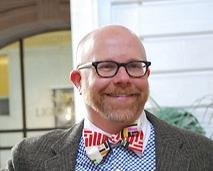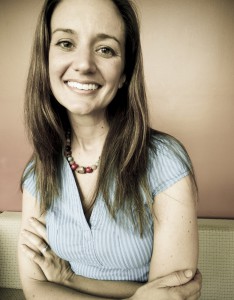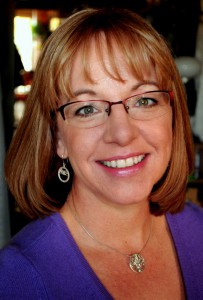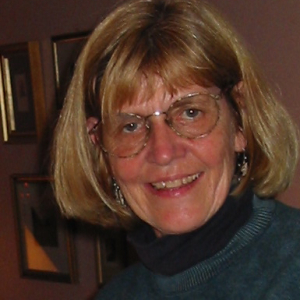Profiling Great Sexuality Educators includes interviews that originally appeared on the website of The Center for Sexual Pleasure and Health and is adapted and reprinted with permission.
 1. What do you do in the field of sexuality?
1. What do you do in the field of sexuality?I do many things, but first and foremost, I’m a sexuality educator and have been for the past eighteen years. I am currently unemployed, working as a consultant, and seeking full-time employment opportunities in sexual and reproductive health and rights. I was most recently the Director of Education and Training at the National Sexuality Resource Center at San Francisco State University where I was the Director of an annual Summer Institute on sexuality.
2. Where are you based out of?
I live in the fabulous and beautiful city of San Francisco! I moved here from Austin, TX, in 2007 and immediately fell in love with the city. I’ve also been having a longtime love affair with New York City having lived there from 1994 – 2000 and getting back there as much as possible.
I live in the fabulous and beautiful city of San Francisco! I moved here from Austin, TX, in 2007 and immediately fell in love with the city. I’ve also been having a longtime love affair with New York City having lived there from 1994 – 2000 and getting back there as much as possible.
3. What is your focus? What do you do?
When I’m not helping out my husband at his vintage furniture and clothing store in the Mission District of SF, I spend most of my time working towards developing (and encouraging others to develop) new models for sexuality education for young people and adults that utilize a health promotion model and incorporate well-being, desire, and pleasure. I also love teaching and mentoring students who want to work in the field as sexuality educators, researchers, and/or advocates. I find that the people who choose to come into this field are some of the most dedicated, passionate, creative, and intelligent people I have ever met – oh, and they’re also incredibly fun!
When I’m not helping out my husband at his vintage furniture and clothing store in the Mission District of SF, I spend most of my time working towards developing (and encouraging others to develop) new models for sexuality education for young people and adults that utilize a health promotion model and incorporate well-being, desire, and pleasure. I also love teaching and mentoring students who want to work in the field as sexuality educators, researchers, and/or advocates. I find that the people who choose to come into this field are some of the most dedicated, passionate, creative, and intelligent people I have ever met – oh, and they’re also incredibly fun!
4. What are your particular goals and passions in the field?
There are a number of things I would like to see happen in the field of sexuality and reproductive health and rights. The main one, and what I have the most passion about, is seeing good sexuality education programs that make people feel good about who they are and help them develop the agency they need to fulfill their desires. I would also like to see more connections between different movements such as the LGBT rights movement and the Reproductive rights movement. Another thing I’d like to see developed is a greater abundance of training opportunities for students interested in entering the field.
There are a number of things I would like to see happen in the field of sexuality and reproductive health and rights. The main one, and what I have the most passion about, is seeing good sexuality education programs that make people feel good about who they are and help them develop the agency they need to fulfill their desires. I would also like to see more connections between different movements such as the LGBT rights movement and the Reproductive rights movement. Another thing I’d like to see developed is a greater abundance of training opportunities for students interested in entering the field.
5. Why did you choose to work in this field?
When I was studying zoology at the University of Texas at Austin as an undergraduate, I came across a flyer for sexual health peer instructors at the student health center. I interviewed and was accepted into the program, and after some classes, training, and practice facilitating workshops, I was ready to stand in front of my first group of freshmen in one of the dorms and talk to them about healthy and fun sex. I immediately knew this was what I wanted to do for the rest of my life. I also think that having teen parents and growing up gay in West Texas probably had a bit to do with my choice of a career path – I know how tough it can be for young people out there from first hand experience (as we all do!) and wanted to change that for future generations.
When I was studying zoology at the University of Texas at Austin as an undergraduate, I came across a flyer for sexual health peer instructors at the student health center. I interviewed and was accepted into the program, and after some classes, training, and practice facilitating workshops, I was ready to stand in front of my first group of freshmen in one of the dorms and talk to them about healthy and fun sex. I immediately knew this was what I wanted to do for the rest of my life. I also think that having teen parents and growing up gay in West Texas probably had a bit to do with my choice of a career path – I know how tough it can be for young people out there from first hand experience (as we all do!) and wanted to change that for future generations.
6. Where did you go for school/training?
I was a sexual health peer instructor at UT Austin and got some basic training from that experience. Later, I went to New York University where I earned a Master of Arts in health studies with a specialization in sexuality education. I had a number of jobs working on HIV research/prevention projects, in clinics and schools, and at nonprofits before I decided to go back to school to earn my PhD in Health Promotion from the University of Texas at Austin. I took as many courses on sexuality as I could including attending a summer institute at the University of Amsterdam, was trained in qualitative research methods, and focused my dissertation research on understanding how young people learn about sex and sexuality during childhood and adolescence.
I was a sexual health peer instructor at UT Austin and got some basic training from that experience. Later, I went to New York University where I earned a Master of Arts in health studies with a specialization in sexuality education. I had a number of jobs working on HIV research/prevention projects, in clinics and schools, and at nonprofits before I decided to go back to school to earn my PhD in Health Promotion from the University of Texas at Austin. I took as many courses on sexuality as I could including attending a summer institute at the University of Amsterdam, was trained in qualitative research methods, and focused my dissertation research on understanding how young people learn about sex and sexuality during childhood and adolescence.
7. Do you have any literature out (websites, articles)?
You can read some of my academic articles, blogs, see my resume, and learn more about me and my work by visiting my website: christopherwhitephd.wordpress.org. Nice bow tie, huh?
You can read some of my academic articles, blogs, see my resume, and learn more about me and my work by visiting my website: christopherwhitephd.wordpress.org. Nice bow tie, huh?
8. What would you recommend to future sexologists attempting to get into the field?
Get involved in sexuality and reproductive health and rights at your school or in your community – volunteering for Planned Parenthood or a center such as The Center for Sexual Health and Pleasure are good ways to start. Find undergraduate or graduate programs that have an emphasis on sexuality or sexual health. Talk to professionals working in the field. Attend conferences such as Sex::Tech, American Association of Sexuality Educators, Counselors, and Therapists (AASECT) annual meeting, or the Society for the Scientific Study of Sexuality (SSSS) meetings. Take chance. Email or call someone whose work you admire or go up and talk to them at a conference.
Get involved in sexuality and reproductive health and rights at your school or in your community – volunteering for Planned Parenthood or a center such as The Center for Sexual Health and Pleasure are good ways to start. Find undergraduate or graduate programs that have an emphasis on sexuality or sexual health. Talk to professionals working in the field. Attend conferences such as Sex::Tech, American Association of Sexuality Educators, Counselors, and Therapists (AASECT) annual meeting, or the Society for the Scientific Study of Sexuality (SSSS) meetings. Take chance. Email or call someone whose work you admire or go up and talk to them at a conference.
9. What is the most challenging aspect for you working in this career?
Our work is more than a paradigm shift in how we do sexuality education or research. We are facing a major cultural shift in how we view and accept our sexuality and the sexuality of others. There are huge structural and institutionalized factors put into place by the powers that be to ensure that we feel shame and guilt and to police our sexual behaviors and desires. We are slowly winning small battles here and there but this is a decades long war and the end is not in sight. Working in this field can be exhausting and the losses can be painful and make us want to give up. However, the successes are some of the most incredible and beautiful experiences I have had in my life so far, and the people I have met along the way have become some of my closest friends.
Our work is more than a paradigm shift in how we do sexuality education or research. We are facing a major cultural shift in how we view and accept our sexuality and the sexuality of others. There are huge structural and institutionalized factors put into place by the powers that be to ensure that we feel shame and guilt and to police our sexual behaviors and desires. We are slowly winning small battles here and there but this is a decades long war and the end is not in sight. Working in this field can be exhausting and the losses can be painful and make us want to give up. However, the successes are some of the most incredible and beautiful experiences I have had in my life so far, and the people I have met along the way have become some of my closest friends.
10. One must read-what would you recommend? Why?
That’s a hard one because there’s so much good stuff out there. If there is only one, I’d say Harmful to Minors: the Perils of Protecting Children from Sex by Judith Levine – it’s probably one of the most influential books that I have read and does an excellent job at pointing out how the way sex education is approached in most places in the US is harmful and damaging.
That’s a hard one because there’s so much good stuff out there. If there is only one, I’d say Harmful to Minors: the Perils of Protecting Children from Sex by Judith Levine – it’s probably one of the most influential books that I have read and does an excellent job at pointing out how the way sex education is approached in most places in the US is harmful and damaging.
__________________________________________________________________
Profiling Great Sexuality Educators includes interviews that originally appeared on the website of The Center for Sexual Pleasure and Health and is adapted and reprinted with permission.




